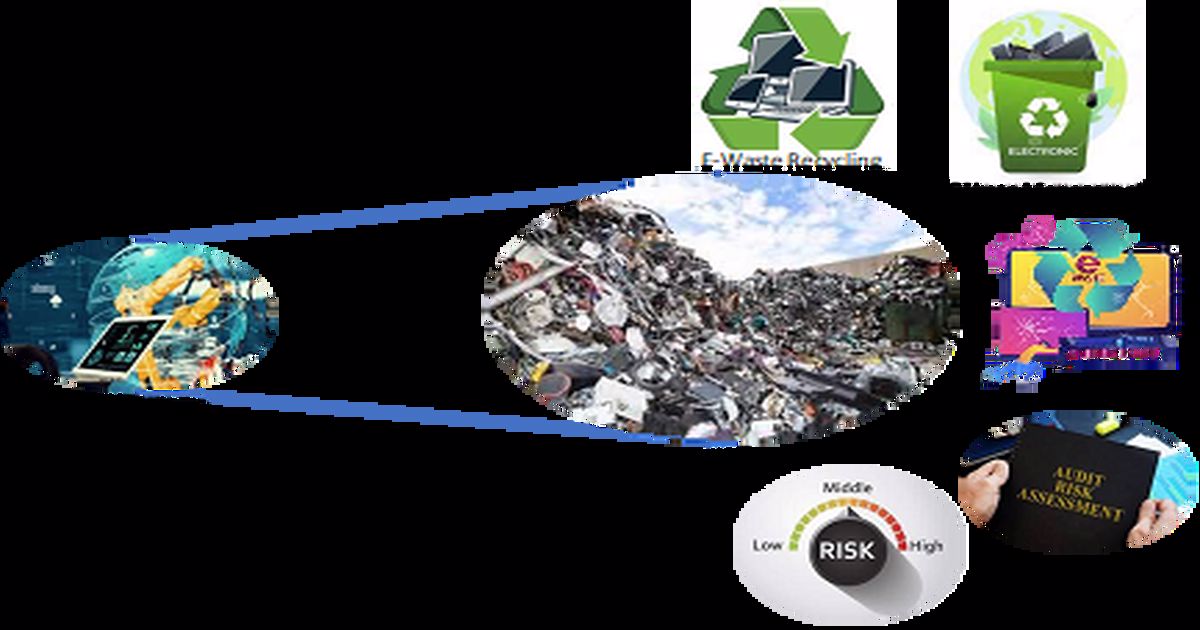Electrical and Electronic Waste: Environmental Impact and Risk Mitigation for Sustainability
A special issue of Sustainability (ISSN 2071-1050). This special issue belongs to the section "Waste and Recycling".
Deadline for manuscript submissions: closed (31 October 2023) | Viewed by 26856

Special Issue Editors
Interests: bioremediation; biosorption; wastewater treatment; separation technology
Special Issues, Collections and Topics in MDPI journals
Interests: emerging pollutants; environmental remediation; nanomaterials; water treatment
Special Issues, Collections and Topics in MDPI journals
Interests: bioconversion; bioprocess engineering; biochar; green technology; wastewater treatment; biodiesel
Interests: soil and water contamination; ecotoxicology, bioremediation and ecotechnological remediation of soil and water contaminants (toxic metal(loid)s and emerging contaminants); environmental microbiology; nanobiotechnology; environmental sustainability and SDGs
Interests: separation processes; adsorption materials; materials characterization
Special Issues, Collections and Topics in MDPI journals
Special Issue Information
Dear Colleagues,
The modern world is associated with the use of different forms of electrical and electronic devices and components, utilized widely in various applications. Although the positive aspects of electrical and electronic equipment are very significant, the growing concern regarding various negative impacts, especially environmental damage and human health hazards, are of major concern. The research area of solid waste management, and especially efforts to understand the hazards posed by electrical and electronics waste, as well as treatment approaches and their challenges are major growing interests among researchers worldwide.
This Special Issue mainly focuses on understanding the generation routes of electrical and electronic wastes, improper disposal and their hazardous effects. We aim to further address the problem by publishing papers addressing various solid waste management strategies; physical, chemical and biological treatment/recovery approaches; reutilization means; circular economy; and trends in sustainability approaches.
In shifting towards global digitalization and modernization, the growth in electric and electronic goods and equipment is undeniable. As the development of new technology is very dynamic and rapidly changing, new equipment is continuously being invented, modified and upgraded—especially at the manufacturing stage. This scenario is the main cause of the increasing amount of waste electrical and electronic equipment (WEEE) worldwide, the toxic and hazardous compounds contained in which represent severe threats to the environment and living organisms. The chain towards sustainability will be affected by WEEE as it interferes with society, culture, environment, and economy. Due to these alarming threats, especially those towards human health, the disposal stage for WEEE has led to the establishment of rules and regulations enforced by the government and non-government sectors through public policies.
The goal of this Special Issue is to consolidate research and current thinking on assessing the environmental impact caused by the significantly increasing amount of waste electrical and electronic equipment (WEEE) globally while designing mitigation plans for the policy makers in realizing a sustainable way of life.
This Special Issue welcomes original research articles and reviews. Research areas may include (but aer not limited to) the following:
- Electric and electronic waste management strategies;
- Environmental risk assessment;
- Potential pathways in mitigating risks caused by WEEE;
- Physical treatment approaches;
- Chemical treatment approaches;
- Bioremediation of WEEE contaminants;
- Bioleaching of electronic waste;
- Biotechnological approaches to WEEE management;
- Recycling of WEEE;
- Resource recovery from WEEE;
- Circular economy and sustainability means of handling WEEE;
- Future outlooks on WEEE.
We look forward to receiving your contributions.
Dr. Rangabhashiyam Selvasembian
Dr. Nhamo Chaukura
Dr. Nur Izyan Wan Azelee
Prof. Dr. Jayanta Kumar Biswas
Prof. Dr. Lucas Meili
Guest Editors
Manuscript Submission Information
Manuscripts should be submitted online at www.mdpi.com by registering and logging in to this website. Once you are registered, click here to go to the submission form. Manuscripts can be submitted until the deadline. All submissions that pass pre-check are peer-reviewed. Accepted papers will be published continuously in the journal (as soon as accepted) and will be listed together on the special issue website. Research articles, review articles as well as short communications are invited. For planned papers, a title and short abstract (about 250 words) can be sent to the Editorial Office for assessment.
Submitted manuscripts should not have been published previously, nor be under consideration for publication elsewhere (except conference proceedings papers). All manuscripts are thoroughly refereed through a single-blind peer-review process. A guide for authors and other relevant information for submission of manuscripts is available on the Instructions for Authors page. Sustainability is an international peer-reviewed open access semimonthly journal published by MDPI.
Please visit the Instructions for Authors page before submitting a manuscript. The Article Processing Charge (APC) for publication in this open access journal is 2400 CHF (Swiss Francs). Submitted papers should be well formatted and use good English. Authors may use MDPI's English editing service prior to publication or during author revisions.
Keywords
- waste electrical and electronic equipment (WEEE)
- environmental impact
- sustainability
- risk
- act and regulations
- circular economy
Benefits of Publishing in a Special Issue
- Ease of navigation: Grouping papers by topic helps scholars navigate broad scope journals more efficiently.
- Greater discoverability: Special Issues support the reach and impact of scientific research. Articles in Special Issues are more discoverable and cited more frequently.
- Expansion of research network: Special Issues facilitate connections among authors, fostering scientific collaborations.
- External promotion: Articles in Special Issues are often promoted through the journal's social media, increasing their visibility.
- Reprint: MDPI Books provides the opportunity to republish successful Special Issues in book format, both online and in print.
Further information on MDPI's Special Issue policies can be found here.









